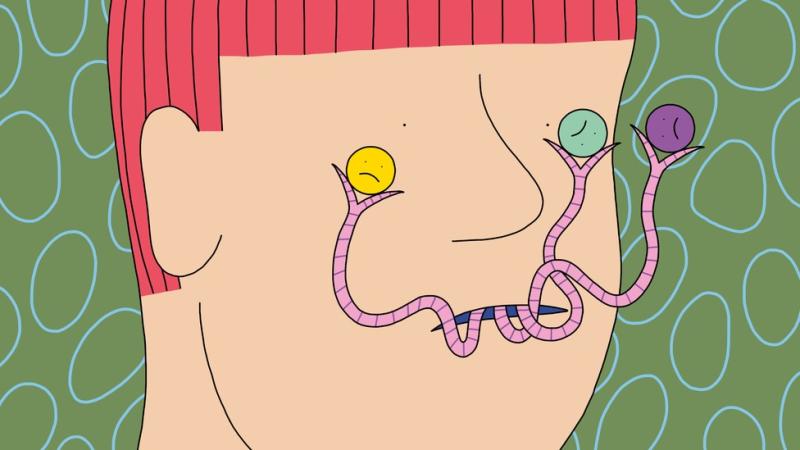The Sociopaths Among Us—And How to Avoid Them
Category: Mental Health and Wellness
Via: hallux • 2 years ago • 7 commentsBy: Arthur C. Brooks - The Atlantic


W e all have stories of meeting people who appeared wonderful at first but turned out to be just awful. Perhaps it was a charming suitor, or a charismatic colleague, or a fascinating new friend. They attracted you on initial impression, but before long, you started to notice behaviors that gave you pause. Maybe it was a little shading of the truth here and there, or a bit too much vanity and selfishness. Perhaps they constantly played the victim, or took credit for other people’s work.
Or maybe your disillusionment with the person was not gradual, but through a dramatic—and dramatically unpleasant—episode. All it may take is a minor disagreement, and suddenly, you get screamed at, threatened with retaliation, or reported to HR. This kind of encounter leaves you, understandably, baffled, hurt, and confused.
Very likely, this person was a “Dark Triad” personality. The term was coined by the psychologists Delroy Paulhus and Kevin Williams in 2002 for people with three salient personality characteristics: narcissism, Machiavellianism, and a measurable level of psychopathy. These people confuse and hurt you, because they act in a way that doesn’t seem to make sense. As one scholar aptly described the ones whose behavior shades more obviously into psychopathy, these are “social predators who charm, manipulate, and ruthlessly plow their way through life, leaving a broad trail of broken hearts, shattered expectations, and empty wallets.”
But at least these people are rare, right? Wrong. Dark Triads counted for about one in 14 people in an international population sample, a proportion that means all of us will meet them on a regular basis in love, in work, in politics, and—most obviously—on social media. For the sake of our happiness, well-being, and wallets, we need to understand them, learn how to identify them, and steer clear of them whenever we can—so that we can find better companions instead.
N arcissism is the egotistical admiration of oneself. Machiavellianism is a duplicitous interpersonal style and disregard for morality. These characteristics are bad enough, but the element of psychopathy adds in an absence of empathy and remorse to complete the Dark Triad: It’s all about me, I am willing to hurt you for my gain, and I don’t care how you feel.
Sometimes, a person like this will display a fourth trait to make a Dark Tetrad : sadism, or the enjoyment of others’ suffering. Some scholars have argued, in effect, that all triad types are really tetrads, because narcissism, Machiavellianism, and psychopathy are all expressions of a governing tendency toward sadism. But whether such personalities enjoy their predation or not is beside the point; with three traits or four, they make life miserable for the rest of us.
The psychologist Scott Barry Kaufman, who has studied Dark Triads for many years, notes that the type’s characteristics exist on a continuum , and that everyone exhibits some degree of the personality. (In an earlier column, I noted that psychological characteristics act as dials, not as switches.) But based on what Kaufman believes to be a threshold of Dark Triad traits, above which they become dominant in a personality, he and a team of researchers found that such people constituted about 7 percent of their international population sample.
Popular perception commonly regards Dark Triads as evil geniuses. No doubt some are, but psychopathy especially tends to be associated with below-average intelligence, and, according to estimates, men within the prison population meet its criteria at disproportionately high rates. In partial contrast with that finding, prevalence of the Dark Triad rises with educational attainment up to a bachelor’s degree (but then falls away among those with advanced degrees). Men are more likely to display parts of the Dark Triad, and the traits are found less as people age .
As far as the workplace is concerned, scholars have found that narcissists tend toward artistic, creative, and social careers; researchers also saw that Machiavellians, in particular, avoid careers that involve caring for others. Look out for Dark Triads, in other words, in professions that involve human contact, performance, and applause, but little concerned attention to other people. An obvious example might be politics; another would be show business. But the type can manifest in many careers and professions. At work, such individuals tend to exaggerate their own worth, show a distrustful attitude toward colleagues, act impulsively and irresponsibly, break rules, and lie.
If working with a Dark Triad is miserable, falling in love with one is worse. Confident and outgoing, they can be extremely attractive, especially to women . They show a strong preference for short-term relationships , and if they find themselves in a relationship, they tend to be unfaithful . And when a breakup inevitably comes, it can be very ugly: Dark Triads are known for “cost escalation” (they will make you pay), manipulation, and open confrontation.
Dark Triads involved in politics create a lot of damage, because narcissists are motivated by self-aggrandizement over public service, and psychopaths are drawn to extreme positions in a radicalized society . So watch out for Dark Triad personalities on the fringes of political and social causes (of either the right-wing or left-wing variety).
Not surprisingly, these personalities are ever-present on social media, which research has shown to be a Dark Triad paradise. They commonly exhibit “ social media disorder ,” which involves excessive use of internet platforms, and a review of the literature has shown that “trolls”—anonymous users who are abusive and like to whip up hatred and controversy—also tend toward Dark Triad traits.
Y ou may be allowed a measure of schadenfreude—without being accused of sadism—to learn that Dark Triads are usually not particularly successful in life. They are not, in general, capable leaders; they don’t have close friends; they report lower-than-average life satisfaction. If you are worrying about whether you qualify, then, for your own happiness’s sake, seek help. Well-designed Dark Triad tests can guide that decision.
More useful for the other 93 percent of us is advice on how to identify and avoid Dark Triads. The traits to look for are self-importance, a sense of entitlement, vanity, a victim mentality, a tendency to bend the truth or even openly lie, manipulativeness, grandiosity, a lack of remorse, and an absence of empathy. Probe for these characteristics particularly when on first dates and in job interviews. You might even want to take that test imaginatively on behalf of someone you suspect may have Triad traits and see what result you get.
Of course, you can’t avoid all social contact for fear of coming across a Dark Triad. We each need romance, friends, and colleagues in life, so simply shunning other people is not a very compelling or realistic strategy. So rather than spend time dodging Dark Triads, look for their opposite. Happily, Kaufman and a team of psychologists profiled this type for us as well, which they call the Light Triad.
The characteristics of a Light Triad include faith in humanity (trusting in people’s fundamental goodness), humanism (believing in the dignity and worth of each person), and a Kantian adherence to the idea of universal moral law (in this context, refusing to objectify or instrumentalize others). Compared with the 7 percent that are dark, Kaufman finds that fully 50 percent of his international population sample qualify as Light Triads, and that the average person has more light than dark personality traits.
Look for these three characteristics in people you might date, work with, or befriend. One way to test for this is simply to see how you feel around a particular person. Do they inspire you to be a better, more loving person? This is a phenomenon called moral elevation , by which mere proximity to moral beauty makes you feel moved, uplifted, and optimistic. Some researchers even report such physiological sensations in subjects as a feeling of warmth in the chest. A case of the warm fuzzies can be a telltale sign that you’re in the presence of a Light Triad.
T o this point , I’ve focused on how Dark Triads negatively affect people, how each of us can spot them and avoid them, and how we can seek out Light Triads instead. But we should also consider the ways we contribute to social incentives: How we choose to reward people—with our dollars, our votes, our clicks—can affect society as a whole. People commonly ask why such areas of life as politics and social media are dominated by so many toxic, polarizing people. The answer is not some big technological mystery; we reward these people and give them greater prominence.
No one person can single-handedly fix this problem any more than they can clean up the environment. We try to do our little part by recycling, disposing of our trash properly, and conserving resources as well as we can. We can extend this ethical hygiene to the culture at large—by withholding our attention, time, support, and resources from the Dark Triads in public life who coarsen our society and threaten the commonweal.







Note the person who should not be mentioned never was, but hey-ho-double-diddle-d, go there if you want to.
None of this to be confused with say the Hong Kong Triads...well.... maybe...
Jordan Peterson weighed in on dark triads in greater psychological detail recently I think on X.
Jordan is back in school to be schooled:
Perhaps. He is certainly willing to consider that he may have been wrong in some of the specific cases or specific allegations. How do you feel about his willingness to make his "re-education" open to the public? He doesn't seem to be worried about talking through the issues openly, or admitting where he might have been over the top or outside the bounds of established professional conduct. Do you think that those who wish to put him through this exercise at his expense (and yet claim it is "not punitive") would be open to making the "education" he is paying for public? If not, why not?
I don't find him interesting enough to follow.
Fair enough. You brought up his "schooling", so thought you might like to discuss in more detail.
Just out of curiosity, how does one determine that someone needs or deserves to be "schooled" without knowing more about them, and/or the claims made against them?
This is Canada and freedom of speech comes with a leash to temper some of the excesses that lead to further excesses. Gabriel Sohier-Chaput comes to mind: